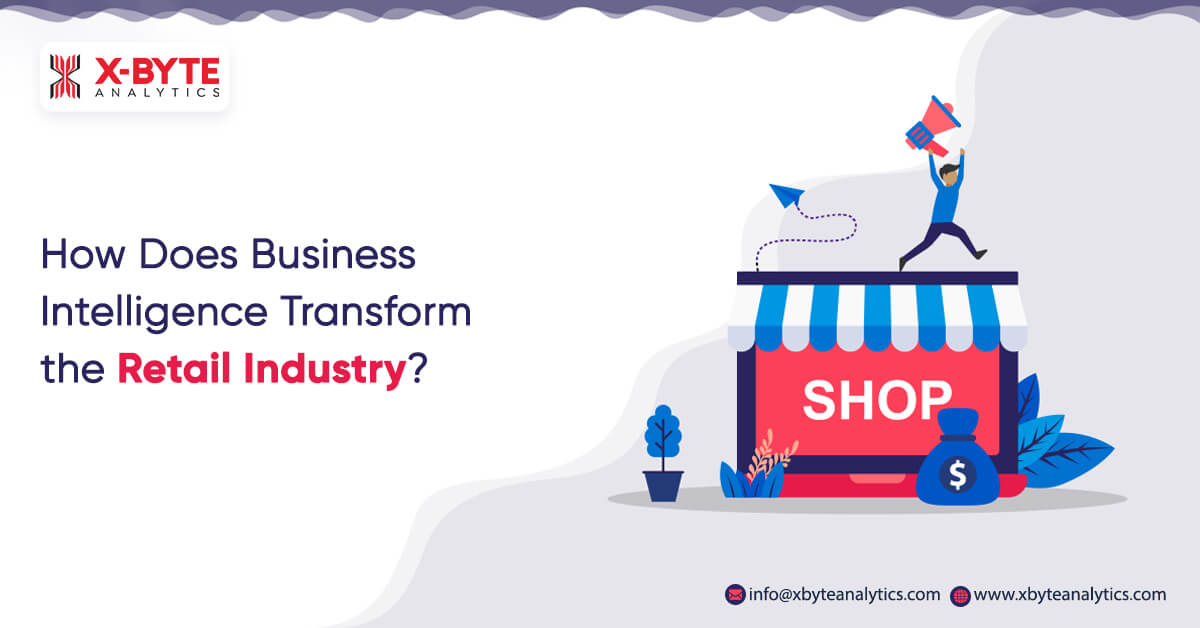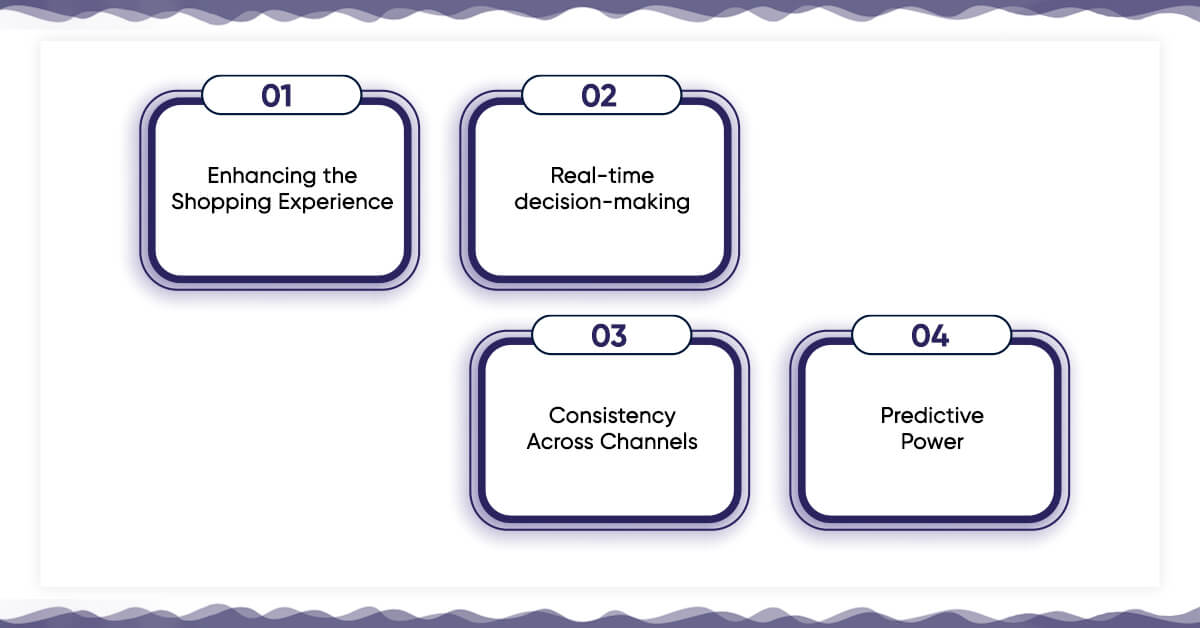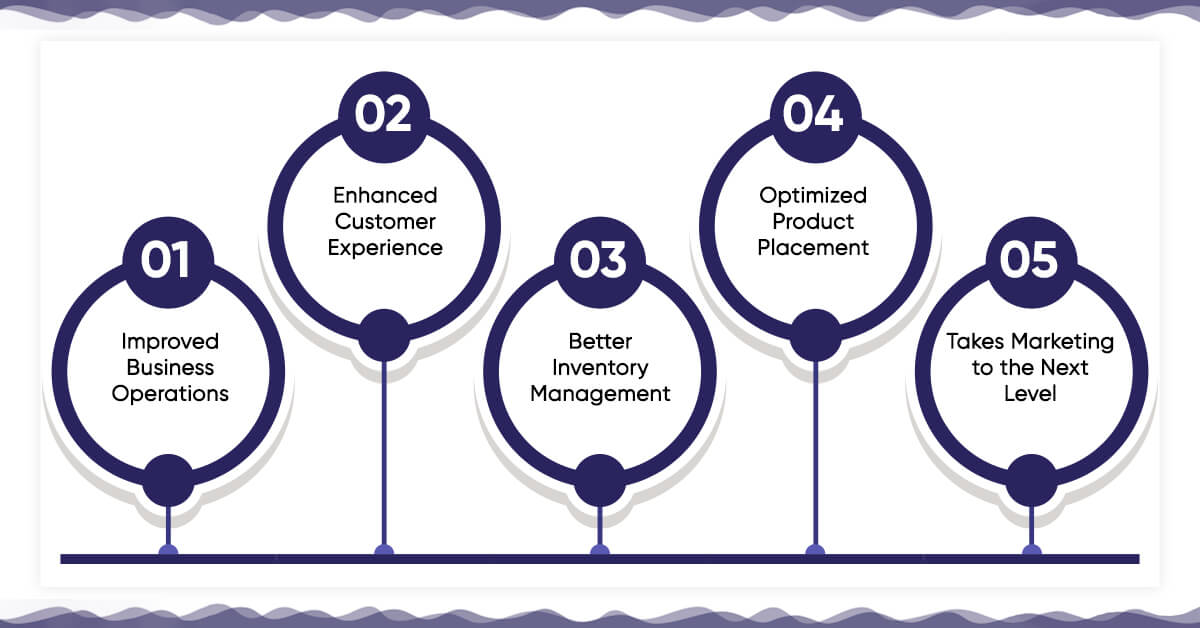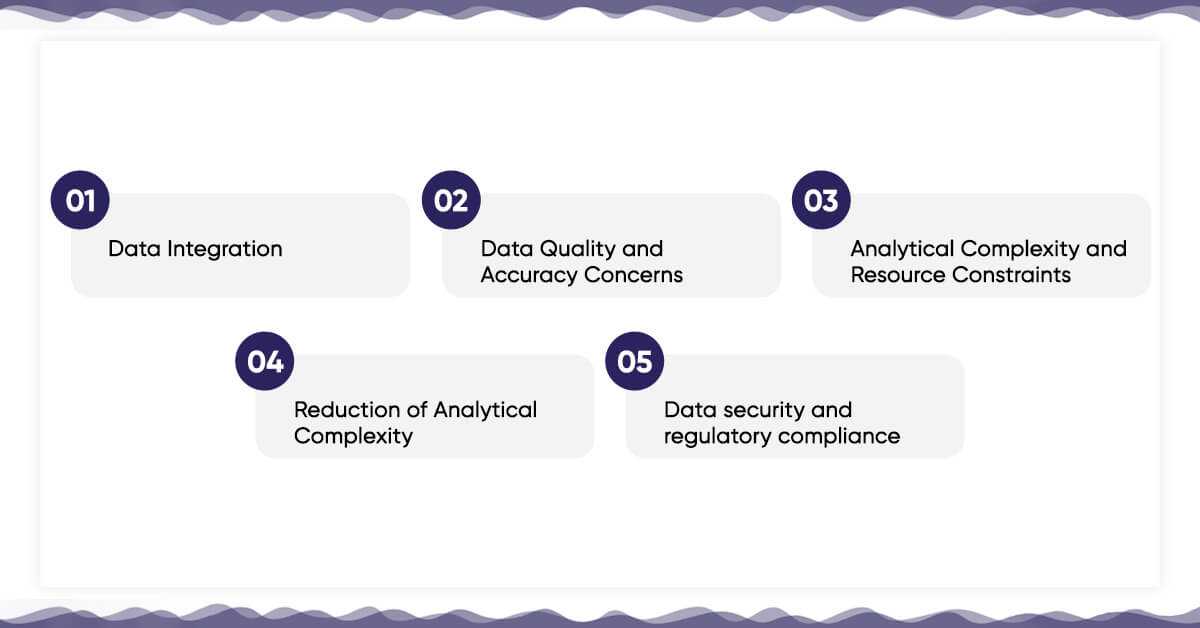
Quick Summary :
Determine and understand business intelligence and how it can transform retail industry. We have compiled the role and benefits of BI in the retail segment that help in knowing how businesses can boost decision making processes. This blog has also outlined challenges and applications of BI for retail businesses.
Introduction
Retailers can now access their consumer data through business intelligence. This enables them to identify buying trends, track consumer journeys, keep an eye on product performance, and take advantage of new market opportunities. BI solutions for retail have grown into a valuable tool by combining BI skills with data management, analytics, and integration. Your retail firm can grow by meeting the needs and wants of your clients with real-time access to factual data. According to reports, the global market for corporate analytics and intelligence apps is predicted to grow by 17.6 billion dollars in 2024.
BI technologies are becoming more and more popular among retail businesses as a way to boost every possibility. Retailers need to have easy access to analytics and BI technologies, even if many large organizations already feel satisfied using them. This blog post will look more closely at how retail BI transforms the game.
What is Business Intelligence in Retail?
Retail BI is the process of transforming data into insights in the retail industry. This may be performed in various ways, but it usually entails utilizing analytics to detect trends and patterns. BI may assist retailers in making better inventory, pricing, marketing, and other choices. Today, merchants may employ various technologies to enhance their business intelligence. This includes:
• Data Mining
• Text analytics
• Predictive Analytics
• Prescriptive Analytics
• Dashboards and Visualizations
Each solution has distinct edges, and merchants must pick the appropriate tools for their needs. Retailers may also make the most of these solutions by determining which indicators to follow to achieve the required data.
The Role of BI in the Retail Industry

Business intelligence in retail is more competitive and robust than ever, and having too much data is not an option for staying ahead. Retailers have vast amounts of data, from consumer sales to inventory details and supplier data. They are increasingly using BI technologies to provide great value to clients. With the right tools, companies may gain insights that improve retail performance.
1. Enhancing the Shopping Experience
BI is vital for observing and examining buyer relations with eCommerce stores in the retail industry. Clients receive custom product guidance based on prior purchases. This is how BI may enhance the shopping experience.
2. Real-time decision-making
Real-time access and analysis of data are beneficial for merchants. By utilizing BI tools, businesses may quickly adjust to market shifts, consumer tastes, and new trends. Retailers can stay competitive by making informed decisions. With the agility provided by real-time data, whether it’s changing prices or inventory offers quickly.
3. Consistency Across Channels
In the age of various channels in retail, it is critical to provide a constant shopping experience across multiple platforms. Thus, increased BI accessibility makes operational and customer data more accessible, allowing businesses to provide a uniform purchasing experience for customers across all touchpoints, including online, in-store, and mobile apps. Integration like this boosts client loyalty and trust.
4. Predictive Power
Predicting inventory requirements is another area where business intelligence thrives. With the help of BI, retailers can actively restock their inventory and expect supply problems. With the use of this predictive ability, businesses can order, merchandise, and store products with more knowledge, which ultimately reduces costs and boosts productivity.
Benefits of BI in the Retail Industry

In today’s market, brands that can provide excellent customer service can generate good sales. It can earn 5.7 times more revenue than competitors through advanced practices and customization. Let’s explore the benefits of business intelligence in the retail industry:
1. Improved Business Operations
Simplifying business procedures is typically related to increased resource efficiency, improved firm performance, and waste reduction. BI solutions may provide retailers with greater functional control. It lowers their ability to observe company events. This allows you to correct any errors swiftly.
2. Enhanced Customer Experience
Ensuring customers are happy is essential for keeping them returning and sticking with a brand. To do this, it’s crucial to understand what customers want so that the right products or services can be offered. Retailers can use business intelligence tools to determine what their customers like and create products just for them.
With these tools, retailers can find out their potential customers and aim their efforts at them. By getting the right information, retailers can learn what customers prefer, how they like to shop, and other essential things. This means they can do more personalized marketing, which makes customers happier and more likely to stay loyal to the brand.
3. Better Inventory Management
Retailers frequently need help with inventory management issues, such as faulty item tracking and excess inventory. However, good business intelligence tools can help them solve these problems. By using these technologies, companies can ensure they have the proper quantity of stock, process orders more quickly, and spend less on excess inventory. Inventory control is crucial for retail firms. It entails managing every aspect of their inventory, including locating, keeping, and selling it.
However, managing inventory can be difficult for retailers because they might not keep track of things well or end up with too much stock. Investing in a business intelligence and data analytics solution can assist in addressing these issues. Retailers can benefit from lower inventory costs, more accurate stock levels, and more straightforward order processing and management.
4. Optimized Product Placement
Business intelligence offers many benefits to the retail industry beyond just customizing products and making customers happy. If you have a physical store, you can use BI tools to help customers find products faster and improve their shopping experience. For example, tools like Microsoft Power BI can create interactive dashboards showing things like how many people come into the store, which products are popular, and what trends are happening in purchases. This helps you make smart choices about where to put products in the store and how to set up the layout.
By organizing your store in the best way possible, you can make it easier for customers to find what they need and make their shopping experience more enjoyable. This means creating a store environment that fits your customers’ needs and preferences.
5. Takes Marketing to the Next Level
The marketing industry relies increasingly on data nowadays because many social media tools and platforms are available. Businesses need a system to analyze data and give valuable insights into what their target customers like to buy to make marketing campaigns effective. That’s where BI tools come in handy. They help businesses make their marketing efforts more successful.
By using BI analytics for marketing, businesses can learn a lot about what their customers like, what they’re interested in, and what they think. This information allows them to create marketing plans and advertise in the right places. For example, if a store wants to use Facebook ads, a BI tool can provide important data like how many people visit their page, how many likes they get, and what people do when they’re on the page. This helps the store make their Facebook ads better and get more customers.
Challenges of BI in the Retail Industry

It takes work to develop solid retail business intelligence solutions. You have a lot of obstacles to overcome along the route. The most frequent mistakes to avoid while utilizing business intelligence for retail business are listed below.
1. Data Integration
Many businesses now collect data from databases, big data platforms, and business apps on their own servers and online. They often set up a data warehouse to store all this data in one place for analysis. But there are other ways to do it, too, like using BI tools or special software to connect the data without putting it in a warehouse. However, this can be tricky.
Retail companies must invest in good data integration solutions to deal with the challenges of putting all this data together. These solutions help make sure the data is consistent and accurate across different systems. They often use Extract, Transform, and Load (ETL) processes. They also use Application Programming Interfaces (APIs) to sync up the data in real-time, which helps businesses make quick decisions based on the latest information.
2. Data Quality and Accuracy Concerns
In retail business intelligence, having accurate data is essential. But for retailers, ensuring the data is accurate and reliable can be a big challenge. When data is incomplete or wrong, it messes up our conclusions from analyzing it. It also makes us question whether the decisions we’re making based on that data are the right ones, which can lead to less-than-great results.
Here are some ways to make sure the data is of good quality:
• Strict Data Governance: Retailers need to have solid rules and structures to ensure the data is accurate. This means setting standards for data quality, doing regular checks to ensure the data is correct, and having processes in place to clean up any bad data.
• Data Validation: Using advanced methods to check the integrity of retail data helps ensure it’s reliable. This includes using sophisticated software to validate the data and investing in systems like Master Data Management (MDM) to keep track of important information.
3. Analytical Complexity and Resource Constraints
Dealing with complicated analytical tools and methods is a big challenge for retailers. The rise of big data and the constantly changing analytics landscape mean that they need to be good at using advanced analytical techniques. But often, retail companies struggle to make the most of BI technologies because they don’t have enough money in their budget and they don’t have enough people with the right skills.
4. Reduction of Analytical Complexity
To make analysis easier, retailers should focus on training their staff. Investing in training programs and promoting a culture where everyone understands data helps employees use BI tools better. Also, using self-service analytics tools lets people from different parts of the company find insights on their own, reducing the need for specialized analysts.
5. Data security and regulatory compliance
Merchants encounter a major challenge in adhering to compliance during a time marked by strict regulatory frameworks and heightened concerns around data security. The General Data Protection Regulation (GDPR), which mandates strict compliance with data protection standards and other privacy regulations, has expanded, making business intelligence (BI) operations more complex.
BI Applications in the Retail Industry
Business Intelligence (BI) in the retail industry is the engine powering retail transformation, from streamlining inventory management to customizing marketing campaigns, spotting industry trends, and forecasting demand. Let’s explore application of business intelligence in retail industry and see how BI boosts consumer happiness, service quality, and efficiency to propel retail success.
1. Sales and Inventory Management
Retailers may precisely forecast future demand by analyzing past sales data with the use of sales and inventory management business intelligence solution . Consequently, this helps to minimize overstocking or understocking problems and optimize inventory levels. Retailers may reduce losses and increase efficiency by ensuring that items are accessible when customers want them by balancing supply and demand. Ultimately, it improve sales with business intelligence in retail to optimize inventory management with retail BI software.
2. Customer Analytics
In retail, knowing your clients is essential. The use of business intelligence in retail helps to explore a wide range of client data, including demographics, browsing habits, and past purchases. Retailers may use this information to provide individualized shopping experiences. This helps in boosting customer satisfaction with retail BI dashboards. For example, they provide product suggestions based on previous purchases or custom marketing catered to the interests of each individual.
3. Supply Chain Optimization
A successful supply chain is essential for retail. Product movement is tracked using BI tools, which give supply chain visibility in real-time. Retailers may use it to identify bottlenecks, improve supply chain efficiency, and optimize routes to reduce supply chain waste with business intelligence. It guarantees the use of business intelligence in the retail sector to assist in goods reaching clients more quickly in addition to cutting expenses.
Conclusion
Moving your business ahead takes a lot of work in the competitive retail sector. You now understand how business intelligence (BI) can revolutionize your retail company and grocery store business intelligence. It answers how to use advanced tools to increase customer happiness, simplify inventory control, and more.
While some BI tools allow you to evaluate a lot of data independently, you might need advanced expertise to profit from them entirely.
Our technical specialists can assist you in utilizing state-of-the-art business intelligence solutions. Our extensive knowledge of developing software for retail and e-commerce will enable you to find the ideal solution and maintain alignment with your unique business goals. You can connect with experts at X-Byte Data Analytics to explore Microsoft Power BI for retail business intelligence.
FAQ
Business intelligence (BI) enables retailers to make informed decisions by analyzing data. Businesses use BI to learn what products and when their consumers are most likely to purchase them. Additionally, it aids with inventory control, preventing them from running out of popular products or having an excess of unsold inventory. Additionally, shops may make adjustments to increase sales by using BI to determine which goods are doing well and which ones aren’t. It’s similar to possessing a top-secret gadget that tells retailers what to sell, when to sell it, and how to increase profits.
There are several benefits of using BI in real the retail industry:
• Improved Customer Understanding
• Optimized Inventory Management
• Enhanced Sales Performance
• Streamlined Supply Chain
• Effective Loss Prevention
• Informed Decision Making
• Improved Financial Management
• Personalized Customer Experience
• Seamless Omni-channel Experience
• Increased Competitiveness
Business intelligence (BI) is utilized in the retail sector to gather and examine vast amounts of sales, customers, and merchandise data. Retailers use specialized equipment and software to collect this data from various sources, including online orders, sales transactions, and customer reviews. After data is gathered, BI tools arrange it into visually appealing reports and graphs. Store managers may then utilize these statistics to plan promotions, determine the optimum prices, and stock the proper store items. By implementing BI, stores may increase revenue, offer more merchandise, and better understand their consumers.
Retail stores may increase sales by utilizing business intelligence (BI) to leverage data for improved customer understanding, inventory management, pricing optimization, and targeted marketing. It also identifies other interesting goods that customers might find and enhances the in-store buying experience. Stores can swiftly adjust their tactics to offer more things to customers by tracking sales with BI technologies.
The cost of putting up retail business intelligence (BI) varies. It depends on factors including the shop size, the type of data analysis required, the BI software selected, and whether any further integration or customization is needed. Purchasing or subscribing to or configuring the program, teaching employees how to use it, and providing continuing support are often expenses.



